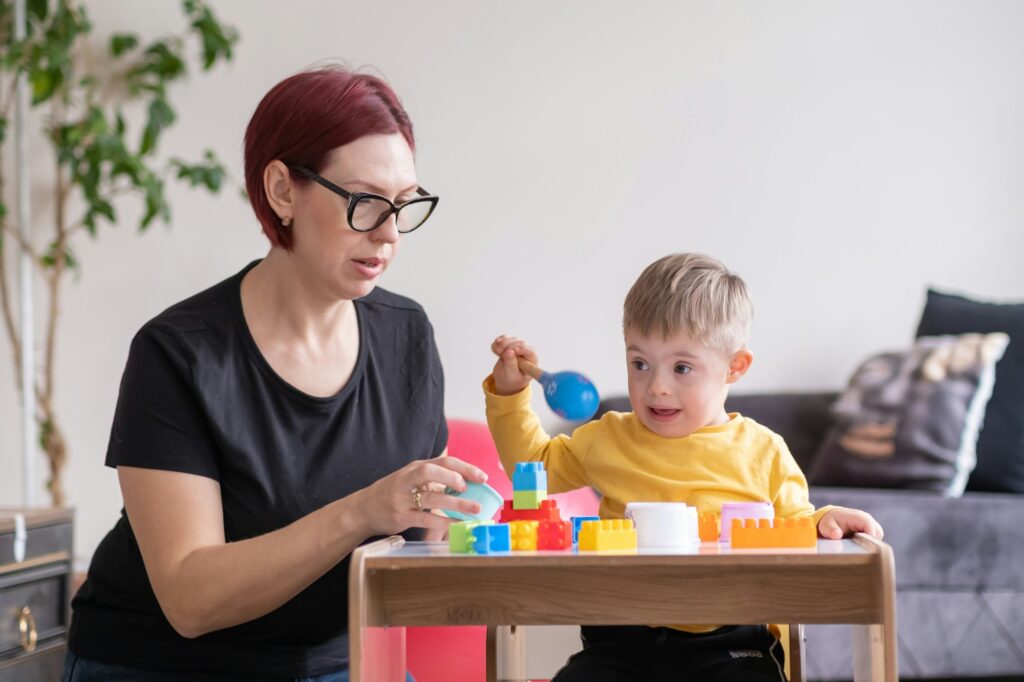
When your child needs pediatric rehabilitation services, finding the right provider is essential. An ideal provider will have many clear advantages. These may include results-driven treatments and experienced, compassionate staff. Another advantage that’s important to consider is collaboration. As your child goes through the rehabilitation process, you’ll likely want to be involved. Engaging parents and caregivers in the rehabilitation process can have many benefits. These benefits reinforce the importance of keeping caregivers involved throughout treatment.
6 major benefits of engaging parents and caregivers in the rehabilitation process
- Treatment consistency — In rehabilitation, consistency is key. Consistency means persistent, active engagement in treatment. Treatment consistency is sometimes challenging when it comes to pediatric patients. A child may engage with treatment during structured sessions but neglect at-home activities. This is where caregiver involvement can become crucial. As a caregiver, you can reinforce therapeutic activities at home between sessions. Encouraging consistency can help speed up your child’s rate of progress. With daily practice, your child can improve their skills more rapidly. During rehabilitation, faster progress often leads to better long-term outcomes.
- Improved communication — It’s important to have clear communication between patients and treatment providers. Treatment providers need to understand how their patients are feeling. Communication is sometimes difficult in pediatric rehabilitation, and it can be especially hard when the child is shy or has limited communication skills. As a caregiver, you know your child very well. This can help you facilitate productive two-way communication with your child’s care team. You can also provide continuous updates on your child’s progress at home. This may help their care team adjust treatment plans as needed. By staying engaged in your child’s rehabilitation process, you can also stay informed. Being informed about the goals and methods of your child’s treatment plan is important, as it helps you understand how to best offer support.
- Motivation and emotional support — Do you want to make sure your child gets the most out of their therapy? Experts say child and caregiver engagement is crucial for occupational therapy. This applies to other therapies involved in rehabilitation as well. As your child makes progress on their recovery journey, your involvement can keep them motivated. Your child may be more likely to take an active interest in their own treatment, which can make the whole process smoother and lead to better results over time. Besides offering encouragement, your presence can have other benefits. Caregiver involvement often helps children feel more secure and supported.
- Family bonding — The rehabilitation process is sometimes challenging. However, it can come with many unexpected positives as well. Families who stay involved throughout the rehabilitation process often come out with stronger bonds in the end. Close involvement with your child’s treatment can also help you get deeper insights into their condition. The knowledge and skills you gain during your child’s rehabilitation journey will be highly valuable. With these skills, you can continue to support their development at home for years to come.
- Collaborative problem-solving — Has your child’s rehabilitation progress faced a sudden obstacle? When challenges arise, collaboration will be key to finding a solution. Working together with your child and their care team, you can strive to find a way forward. As a caregiver, your unique perspective may be vital. Sharing your thoughts with your child’s providers can help them develop innovative solutions. By collaborating with their care team, you can improve your child’s treatment experience.
- Sustained progress — Do you want to make sure your child keeps making progress? Staying engaged in the rehabilitation process is an essential part. By staying involved, you can contribute to your child’s sustained progress. This progress may continue beyond their structured therapy sessions. Your continuous support can also help prevent setbacks. This helps ensure that your child maintains their progress as they continue to advance.
Ability KC offers family-centered pediatric rehabilitation programs
Children of all ages can experience an improved treatment journey with caregiver support. At Ability KC, we appreciate the value of collaborative care. Our team centers research-based approaches that play to the strengths of everyone involved. When your family is ready, Ability KC is here to help. With an excellent pediatric program, we are proud to offer the highest level of care to our patients and their families.
We work with children aged 0 to 18, with special programs for specific age groups. Our therapeutic preschool services, for example, are tailored to meet the needs of children 1 to 5 years old. Our high staff-to-child ratio allows us to deliver exceptional care and support, tailored to the unique needs of each child.
Ability KC is a designated Comprehensive Outpatient Rehabilitation Facility (CORF). Contact our team today to learn more or to schedule an initial appointment.